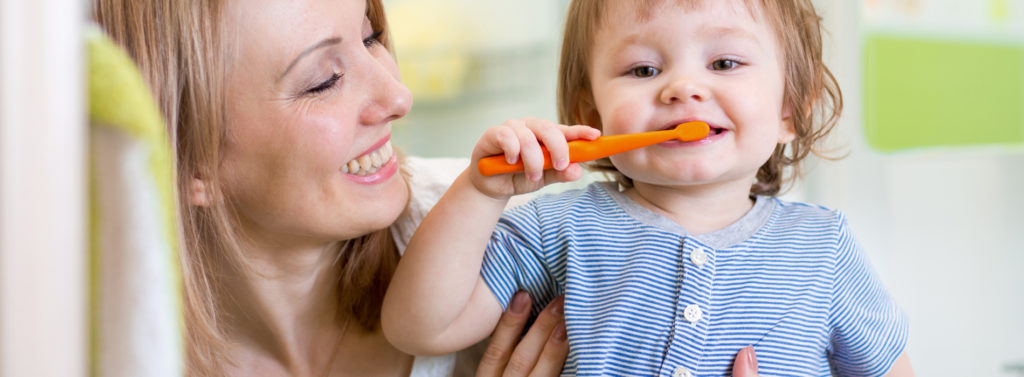Oral Hygiene for Babies
When should you begin cleaning your child’s teeth? It’s a question parents have been asking for generations. In an interview with Dr. Manal Al Halabi, Associate Professor and Chair of Pediatric Dentistry at Dubai Dental Clinic, she discusses why it’s best to start from day one

Oral healthcare is an essential part of a child’s development, so it’s important that the journey begins at the earliest stage possible – as soon as a baby starts feeding. By implementing the practice of daily dental care for your baby, much like bathing, feeding and nappy changing, within a short timeframe it will become a vital part of a daily routine that occurs naturally, without the need to set a reminder. “It might seem strange to consider practicing dental care in babies who don’t have teeth. However, as soon as a child begins feeding from the moment they are born, oral healthcare must come into play,” says Dr. Manal Al Halabi, Associate Professor and Chair of Pediatric Dentistry at Dubai Dental Clinic and Hamdan Bin Mohammed College of Dental Medicine (HBMDM) at MBRU.
Babies can be susceptible to early tooth decay, even before their first teeth start to show, as it develops from the passing of bacteria from parents and caregivers through saliva. For example, bacteria can be spread by sharing saliva on spoons or cups, or testing foods before feeding it to babies. Frequent exposure to liquids or food, other than water, for long periods throughout the day can result in increased susceptibility to cavities. “One way to counter this is to gently clean your babies’ gums with a warm baby washcloth after feeding. This early adoption of dental care cleans the baby’s mouth of any additional food remnants which might lead to higher levels of harmful bacteria in the mouth, and this has the same effect as you brushing your teeth after every meal,” says Dr. Manal. Furthermore, it is important to be mindful of a baby’s nursing habits. “Sleeping with a bottle in their mouth can increase the chances of dental decay and once teething begins, consider using teethers made by reputable companies. “We highly recommend teethers made from a hard material that can be refrigerated, as the cold temperatures eases the discomfort babies feel in the gums as the teeth erupt.”
Once the teeth appear, Dr. Manal advises on daily brushing with a soft baby toothbrush and a small amount of fluoride-containing toothpaste (1,000 part per million), equivalent to the size of a grain of rice. It is critical to understand that from a young age, children’s immunities need to be developed as well, so it is vital that we allow the baby to get natural or non-medicinal ways of dealing with the discomfort of teething. “Excessive intake of painkillers or antibiotics from infancy can really take a toll on a child’s immune system, which can result in complications in their health development. Unless antibiotics are prescribed for serious medical conditions, we recommend that parents help enhance their child’s immune system by following proper dietary and hygiene practices, including oral hygiene,” says Dr. Manal.
The risk of tooth decay increases when children begin consuming solid foods at six months old. Your little ones may quickly develop preference for sweet tastes and being aware of sugar in baby foods is important in the practice of good oral healthcare. Soft, cooked carrots or mashed sweet potato that contain natural sweeteners are a great alternative and meal option. Finally, and these are doctor’s orders, parents play a leading role in shaping good oral healthcare and child development. “One key element of that role to ensure a child is on the correct dental journey is to schedule regular visits to the dentist every six months, after the eruption of the first baby tooth or on the first birthday, whichever comes first, to ensure proper gum health and teeth.” As the famous saying goes, prevention is always better than the cure.











Comments